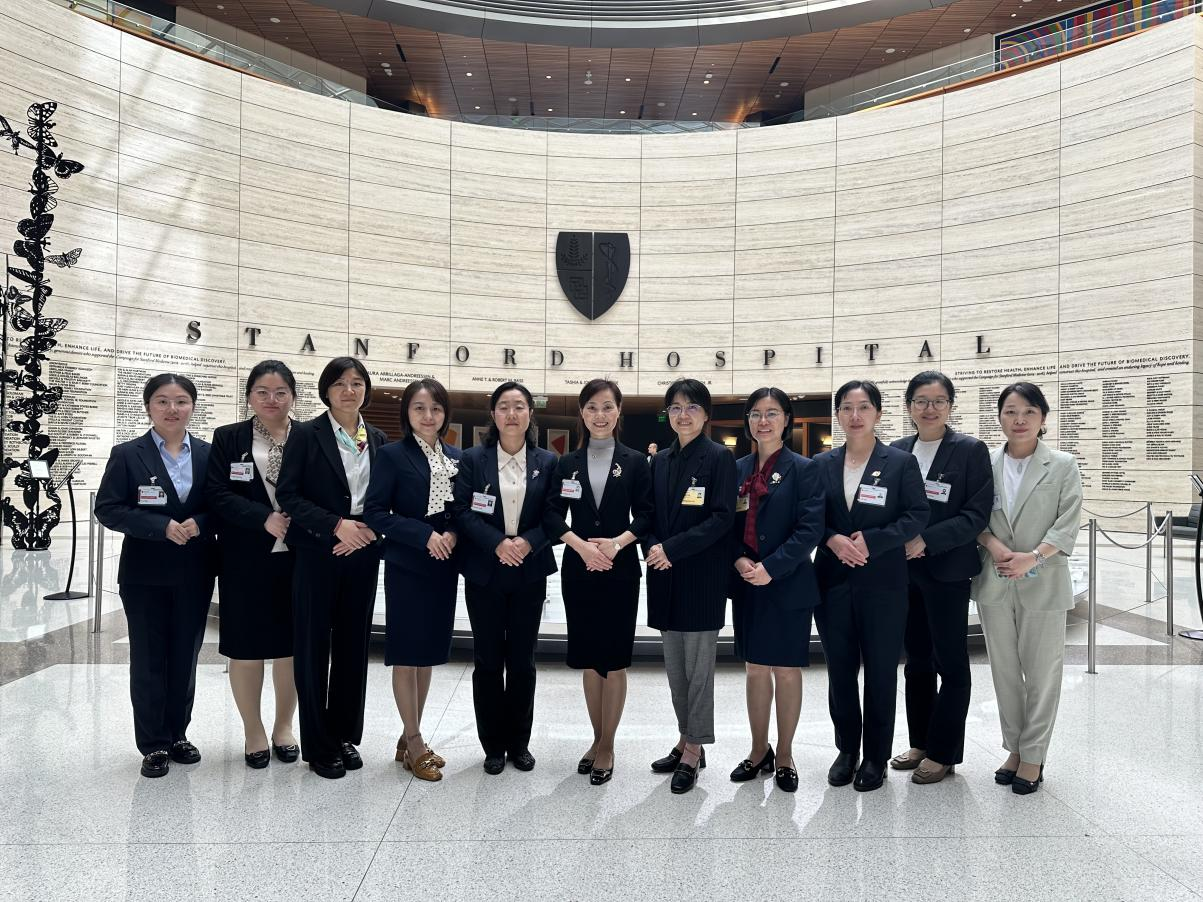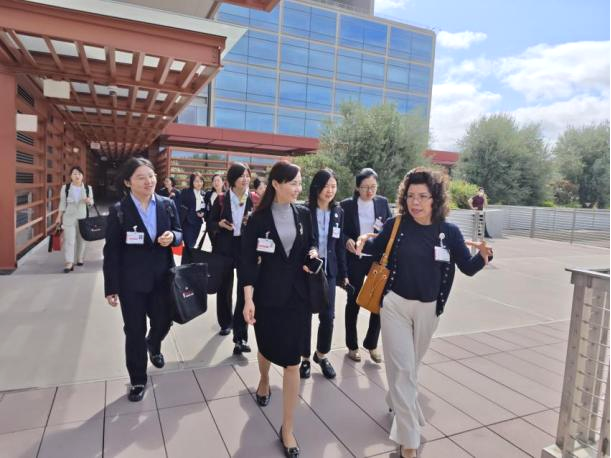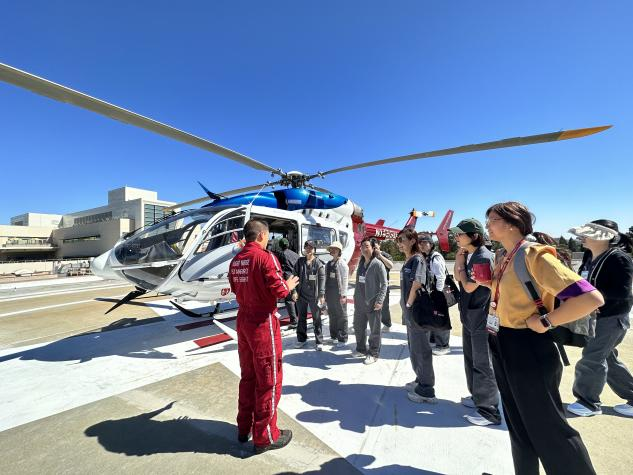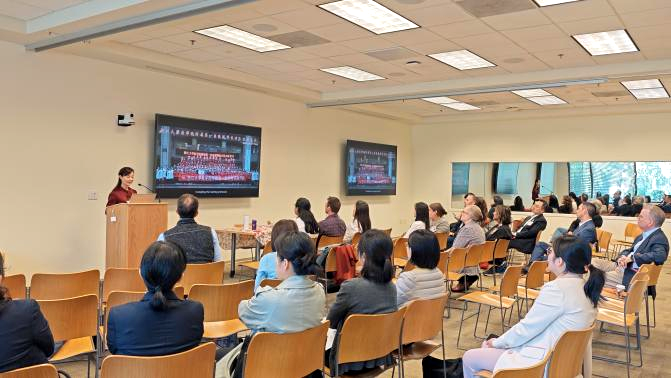In an era of rapid advancements in healthcare and technology, the First Affiliated Hospital, Zhejiang University School of Medicine (FAHZU) is dedicated to improving its nursing capabilities and broadening its global perspective. Guided by a philosophy of "patient-centered care and pursuit of excellence," FAHZU recently launched an international exchange program at Stanford Health Care (SHC), aimed at deepening clinical knowledge and fostering professional development.
A delegation of 11 nursing leaders and specialists from FAHZU, led by Deputy Nursing Director LU Fangyan, participated in a month-long program at SHC for Nursing Excellence last month. This initiative provided the team with a unique opportunity to learn from a leading medical institution and to experience its renowned Magnet culture, interdisciplinary collaboration, and patient-centered approach.

Immersing in Stanford’s Magnet Culture
Stanford Health Care, located in California’s Bay Area, is globally recognized for its excellence in organ transplantation, cardiovascular treatment, oncology, and neurosciences. As a Magnet-designated hospital—an accolade awarded by the American Nurses Credentialing Center—SHC is acknowledged for its commitment to nursing excellence, quality improvement, and leadership development.
Upon arrival, the FAHZU delegation received a thorough introduction to SHC’s operations, facilities, and patient-centered design. They were particularly impressed by the Magnet culture, which emphasizes shared leadership, open communication, and empowerment for nurses. Within this framework, nurses play a vital role in patient care decisions, promoting collaboration and continuous feedback, thereby ensuring improved patient outcomes.


Advanced Learning and Cultural Exchange
During their stay, the FAHZU team participated in various professional exchanges, clinical rotations, and specialized training. They gained hands-on experience in critical care, bone marrow transplantation, and cardiothoracic intensive care. Workshops on leadership, patient safety, and the use of EPIC, an advanced electronic health record system, further enriched their knowledge.

A key aspect of the exchange was the emphasis on humanistic care, inspiring FAHZU nurses to reflect on their practices. The focus on patient dignity, emotional well-being, and family involvement underscored the importance of personalized care, prompting the team to consider how to integrate these values into their work.

As the program concluded with a graduation ceremony, the FAHZU team shared reflections on their experiences. The insights gained will inform future innovations at FAHZU, including initiatives in smart healthcare and interdisciplinary collaboration. This experience not only broadened their professional expertise but also fostered a commitment to advancing patient-centered care and nursing excellence in China.


